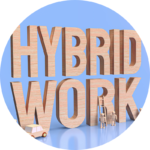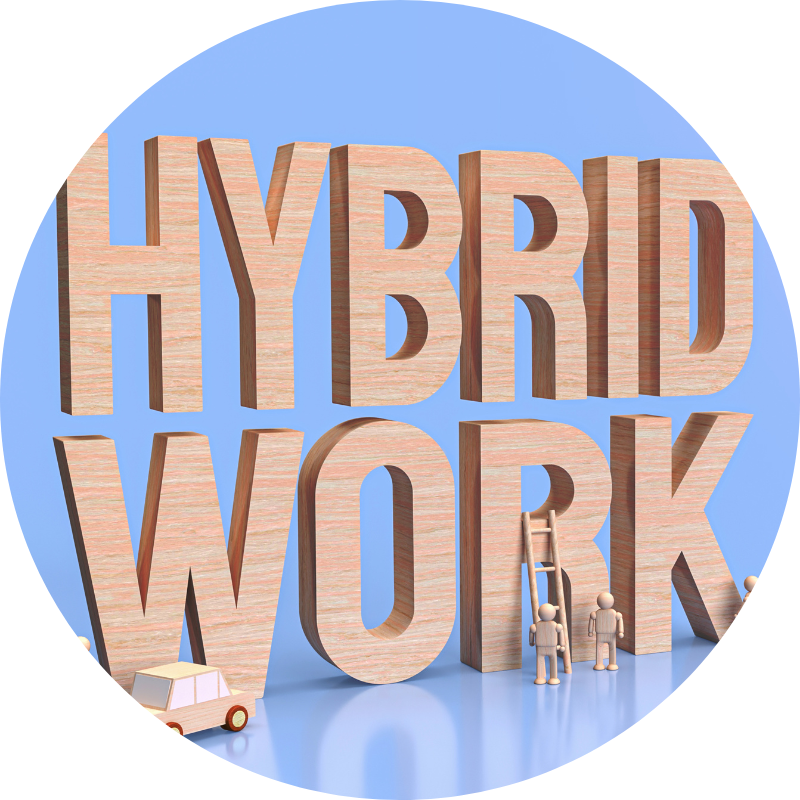 Hybrid working is a flexible approach that combines working in an office environment and working from home. Hybrid work also supports a variety of different work schedules beyond the traditional “Nine to Five” workday and “Monday through Friday” work week. Ultimately, hybrid work provides the flexibility for employees to work in ways that are most effective for them, without compromising the objectives and responsibilities of their employment role.
Hybrid working is a flexible approach that combines working in an office environment and working from home. Hybrid work also supports a variety of different work schedules beyond the traditional “Nine to Five” workday and “Monday through Friday” work week. Ultimately, hybrid work provides the flexibility for employees to work in ways that are most effective for them, without compromising the objectives and responsibilities of their employment role.
The greatest advantages of hybrid work include an improved work-life balance, more efficient use of time, employer-employee collaboration over work hours and work location, burnout mitigation, and higher productivity.
Improved work-life balance is, perhaps, the most coveted benefit of the hybrid workplace. Hybrid workers tout improved job satisfaction attributed to the freedom to choose whether to work on or offsite and the ability to determine their own schedule. This increased employee autonomy creates an ability to fit work around the rest of their lives, allowing for more time with family and friends, hobbies, volunteering and self-care.
Hybrid workers also report an improvement in the efficient use of time. Remote work provides a greater ability to focus with fewer distractions, saved commuting time and costs, as well as a higher level of motivation. While the number one reason employees prefer hybrid work is to avoid commute time, the ability to use break and meal periods to accomplish personal tasks is also top on the list. For example, an employee in the office may use their meal period to eat in the breakroom, but at home they are able to use this time to complete household tasks, thus leading to more free time on the weekend.
Hybrid workers are also reporting a higher engagement and less burnout. A study by BISNOW reports that hybrid employees are “significantly happier and more productive.” They are energized and utilize their in-office time in a more productive manner. The study also reported improved IT skills as hybrid workers have had to master virtual meeting platforms such as ZOOM, connecting to on-site networks, and other software and hardware issues associated with working off-site.
A recent Forbes article suggests “The future of work is hybrid. The future of work is employee-led. To succeed at work in the future, businesses must follow suit. This means finding technologies that make their lives easier and finding better ways for employees to work.”
If your business is considering implementing a hybrid workplace, Contact Us for a complimentary 15 minute meeting with one of our HR experts. Our HR Service plans can help your business implement and manage your hybrid workplace and workforce.
For the latest updates, follow us on LinkedIn, Facebook, Twitter, YouTube, Instagram and TikTok for even more business tips and news.
*Southland Data Processing, Inc. (“SDP”) is not a law firm. This article is intended for informational purposes only and should not be relied upon in reaching a conclusion in a particular area of law. Applicability of the legal principles discussed may differ substantially in individual situations. Receipt of this or any other SDP materials does not create an attorney-client relationship. SDP is not responsible for any inadvertent errors that may occur in the publishing process.

